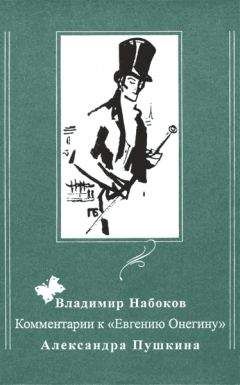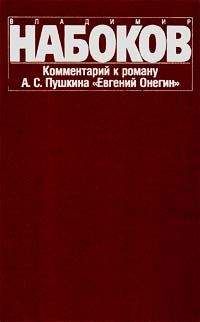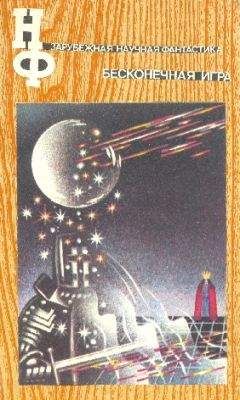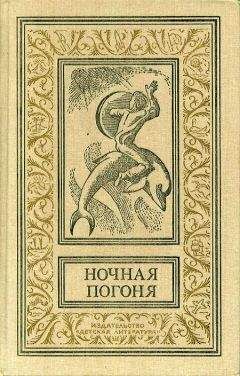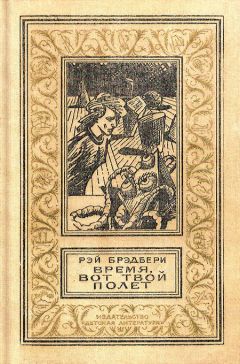XLII
She does not bid him rise
and, not taking her eyes off him,
does not withdraw
4 her limp hand from his avid lips....
What is her dreaming now about?
A lengthy silence passes,
and finally she, softly:
8 “Enough; get up. I must
frankly explain myself to you.
Onegin, do you recollect that hour
when in the garden, in the avenue, fate brought us
12 together and so meekly
your lesson I heard out.
Today it is my turn.
“Onegin, I was younger then,
I was, I daresay, better-looking,
and I loved you; and what then, what
4 did I find in your heart?
What answer? Mere severity.
There wasn't — was there? — novelty for you
in a meek little maiden's love?
8 Even today — good heavens! — my blood freezes
as soon as I remember
your cold glance and that sermon.... But I do not
accuse you; at that awful hour
12 you acted nobly,
you in regard to me were right,
to you with all my soul I'm grateful....
“
Then — is it not so? — in the wilderness,
far from vain Hearsay,
I was not to your liking.... Why, then,
now 4 do you pursue me?
Why have you marked me out?
Might it not be because I must
now move in the
grand monde;
8 because I have both wealth and rank;
because my husband has been maimed in battles;
because for that the Court is kind to us?
Might it not be because my disrepute
12 would be remarked by everybody now
and in society might bring you
scandalous honor?
“I'm crying.... If your Tanya
you've not forgotten yet,
then know: the sharpness of your blame,
4 cold, stern discourse,
if it were only in my power
I'd have preferred to an offensive passion,
and to these letters and tears.
8 For my infantine dreams
you had at least some pity then,
at least consideration for my age.
But
now!... What to my feet
12 has brought you? What a trifle!
How, with your heart and mind,
be the slave of a trivial feeling?
“But as to me, Onegin, this magnificence,
a wearisome life's tinsel, my successes
in the world's vortex,
4 my fashionable house and evenings,
what do I care for them?... At once I'd gladly
give all the frippery of this masquerade,
all this glitter, and noise, and fumes,
8 for a shelfful of books, for a wild garden,
for our poor dwelling,
for those haunts where for the first time,
Onegin, I saw you,
12 and for the humble churchyard where
there is a cross now and the shade
of branches over my poor nurse.
“Yet happiness had been so possible,
so near!... But my fate is already
settled. Imprudently,
4 perhaps, I acted.
My mother with tears of conjurement
beseeched me. For poor Tanya
all lots were equal.
8 I married. You must,
I pray you, leave me;
I know: in your heart are
both pride and genuine honor.
12 I love you (why dissimulate?);
but to another I belong:
to him I shall be faithful all my life.”
She has gone. Eugene stands
as if by thunder struck.
In what a tempest of sensations
4 his heart is now immersed!
But there resounds a sudden clink of spurs,
and there appears Tatiana's husband,
and here my hero,
8 at an unfortunate minute for him,
reader, we now shall leave
for long... forever.... After him
sufficiently along one path
12 we've roamed the world. Let us congratulate
each other on attaining land. Hurrah!
It long (is it not true?) was time.
Whoever, O my reader,
you be — friend, foe — I wish to part
with you at present as a pal.
4 Farewell. Whatever in these careless strophes
you might have looked for as you followed me —
tumultuous recollections,
relief from labors,
8 live images or witticisms,
or faults of grammar —
God grant that in this book, for recreation,
for dreaming, for the heart,
12 for jousts in journals,
you find at least a crumb.
Upon which, let us part, farewell!
You, too, farewell, my strange traveling companion,
and you, my true ideal,
and you, my live and constant,
4 though small, work. I have known with you
all that a poet covets:
obliviousness of life in the world's tempests,
the sweet discourse of friends.
8 Rushed by have many, many days
since young Tatiana, and with her
Onegin, in a blurry dream
appeared to me for the first time —
12 and the far stretch of a free novel
I through a magic crystal
still did not make out clearly.
But those to whom at amicable meetings
its first strophes I read —
“Some are no more, others are distant,”
4 as erstwhiles Sadi said.
Without them was Onegin's picture finished.
And she from whom was fashioned
the dear ideal of “Tatiana”...
8 Ah, much, much has fate snatched away!
Blest who left life's feast early,
not having to the bottom drained
the goblet full of wine;
12 who never read life's novel to the end
and all at once could part with it
as I with my Onegin.
THE END
1. Written in Bessarabia. >>
2. Dandy [Eng.], a fop. >>
3. Hat à la Bolivar. >>
4. Well-known restaurateur. >>
5. A trait of chilled sentiment worthy of Childe Harold. The ballets of Mr. Didelot are full of liveliness of fancy and extraordinary charm. One of our romantic writers found in them much more poetry than in the whole of French literature. >>
6. “Tout le monde sut qu'il mettoit du blanc, et moi qui n'en croyois rien je commençai de le croire, non seulement par l'embellissement de son teint, et pour avoir trouvé des tasses de blanc sur sa toilette, mais sur ce qu'entrant un matin dans sa chambre, je le trouvai brossant ses ongles avec une petite vergette faite exprès, ouvrage qu'il continua fi+èrement devant moi. Je jugeai qu'un homme qui passe deux heures tous les matins à brosser ses ongles peut bien passer quelques instans à remplir de blanc les creux de sa peau.”
(Les Confessions de Jean-Jacques Rousseau.)Grimm was ahead of his age: nowadays people all over enlightened Europe clean their nails with a special brush. >>
7. The whole of this ironical stanza is nothing but a subtle compliment to our fair compatriots. Thus Boileau, under the guise of disapprobation, eulogizes Louis XIV. Our ladies combine enlightenment with amiability, and strict purity of morals with the Oriental charm that so captivated Mme de Staël
(
Dix ans d'exil). >>
8. Readers remember the charming description of a Petersburg night in Gnedich's idyl:
Here's night; but the golden stripes of the clouds do not darken.
Though starless and moonless, the whole horizon lights up.
Far out in the [Baltic] gulf one can see the silvery sails
4 Of hardly discernible ships that seem in the blue sky to float.
With a gloomless radiance the night sky is radiant,
And the crimson of sunset blends with the Orient's gold,
As if Aurora led forth in the wake of evening
8 Her rosy morn. This is the aureate season
When the power of night is usurped by the summer days;
When the foreigner's gaze is bewitched by the Northern sky
Where shade and ambrosial light form a magical union
12 Which never adorns the sky of the South:
A limpidity similar to the charms of a Northern maiden
Whose light-blue eyes and rose-colored cheeks
Are but slightly shaded by auburn curls undulating.
16 Now above the Neva and sumptuous Petropolis
You see eves without gloom and brief nights without shadow.
Now as soon as Philomel ends her midnight songs
She starts the songs that welcome the rise of the day.
20 But 'tis late; a coolness wafts on the Nevan tundras;
The dew has descended;...
Here's midnight; after sounding all evening with thousands of oars,
The Neva does not stir; town guests have dispersed;
24 Not a voice on the shore, not a ripple astream, all is still.
Alone now and then o'er the water a rumble runs from the bridges,
Or a long-drawn cry flies forth from a distant suburb
Where in the night one sentinel calls to another.
28 All sleeps.... >>
9. Not in dream the ardent poet
the benignant goddess sees
as he spends a sleepless night
4 leaning on the granite.
Muravyov, “To the Goddess of the Neva.” >>
10. Written in Odessa. >>
